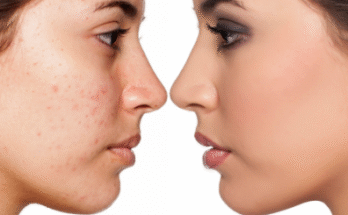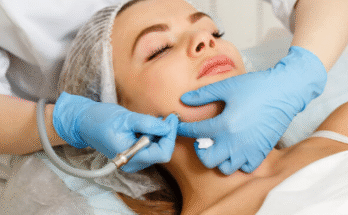Acne is one of the most common skin concerns around the world, and it can affect people of all ages. While breakouts can feel frustrating, the good news is that dermatologists and skin professionals have developed effective ways to manage acne and support healthier skin. Understanding what works and adopting consistent routines can make a significant difference over time.
One of the most important professional tips is to keep your skincare routine gentle. Many people assume that harsh scrubs or strong cleansers will eliminate pimples quickly, but aggressive products can irritate the skin and worsen inflammation. Dermatologists recommend washing your face twice daily with a mild cleanser that removes excess oil and dirt without stripping away natural moisture. Gentle cleansing helps maintain the skin’s protective barrier, which is essential for reducing breakouts in the long run.
Hydration is another crucial factor that is sometimes overlooked. Even if you have oily or acne-prone skin, skipping moisturizer is not the answer. When the skin becomes dehydrated, it may produce even more oil to compensate, leading to clogged pores. A lightweight, non-comedogenic moisturizer—meaning it will not block pores—helps balance the skin while reducing irritation. Hydrated skin also responds better to acne treatments, making them more effective.
Professional care often involves targeted treatments, and one of the most common options is topical medication. Ingredients like benzoyl peroxide, salicylic acid, and retinoids are frequently used to fight acne. Benzoyl peroxide works by reducing acne-causing bacteria, salicylic acid helps exfoliate pores, and retinoids encourage cell turnover to prevent blockages. While many of these can be found in over-the-counter products, dermatologists may prescribe stronger versions if needed. Consistency is key, as these treatments can take several weeks to show noticeable results.
Another professional tip is to avoid picking at or squeezing pimples. It may be tempting to try to remove blemishes quickly, but this habit can push bacteria deeper into the skin and increase the risk of scarring. Dermatologists often perform safe extraction techniques if necessary, but at home, it is best to let the skin heal naturally with proper treatment. Preventing scars is just as important as treating active acne.
Lifestyle also plays a role in skin health. Stress, poor sleep, and certain dietary habits may contribute to breakouts for some people. Professionals suggest prioritizing a balanced diet with plenty of vegetables, fruits, and water while limiting excessive sugar and processed foods. Getting enough rest supports the body’s natural repair processes, which can help reduce skin inflammation. Managing stress through activities like exercise, meditation, or hobbies can also make a positive impact.
It is important to remember that acne does not always clear up overnight. Patience and consistency are part of the process. Dermatologists often encourage their patients to stick with a treatment plan for at least several weeks before evaluating results. Constantly switching products too quickly can lead to irritation and prevent progress. Having realistic expectations and focusing on gradual improvement can reduce frustration.
For more persistent or severe acne, professional treatments such as chemical peels, light therapy, or prescription oral medication may be recommended. These options should always be discussed with a qualified dermatologist who can tailor the approach to your skin’s needs. Every person’s skin is unique, and what works for one individual may not be effective for another, which is why professional guidance is so valuable.
Finally, maintaining a positive outlook is essential. Acne is a common condition, and experiencing breakouts does not define anyone’s worth or beauty. With the right care, professional tips, and a little patience, it is possible to achieve clearer and healthier skin. The combination of gentle routines, effective treatments, and supportive lifestyle choices can help anyone feel more confident in their skin.

